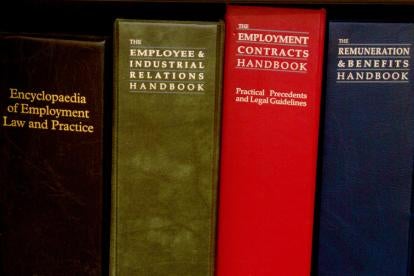Employers often struggle to provide employees with their requested accommodations and to comply with disability laws while still effectively running their business. This struggle has been compounded with the Equal Employment Opportunity Commission’s aggressive pursuit of litigation in this area in recent years. A New York federal court recently weighed in on the issue in Kelly v. Starwood Hotels & Resorts Worldwide, Inc., 15 Civ. 6309 (DLC), 2017 U.S. Dist. LEXIS 43485 (S.D.N.Y. Mar. 24, 2017), holding that an employer is only required to provide an employee with a “plainly reasonable” accommodation, not the employee’s requested accommodation.
In Kelly, the plaintiff, a service express agent (“agent”) at the Westin Hotel, alleged that Starwood failed to provide her with reasonable accommodations for her disabilities in violation of the Americans with Disabilities Act (“ADA”) and the New York City Human Rights Law (“NYCHRL”). Agents at the Westin are staffed 24 hours a day across three shifts, morning, afternoon and overnight, and are responsible for answering hotel guest phone calls, and facilitating guest services such as wake up calls and room service. The shifts are generally determined by seniority pursuant to the collective bargaining agreement but are subject to change depending on the hotel’s staffing needs.
In December 2014, the plaintiff provided Starwood with a doctor’s note indicating that she had been diagnosed with hypertension, hyperthyroidism, osteoarthritis, chronic elbow pain and cardiac arrhythmia, and recommending that the plaintiff avoid working long hours and night shifts, which could exacerbate her condition. The plaintiff requested that Starwood accommodate her by not assigning her to work double shifts or overnight shifts. Starwood denied the requested accommodation because granting that request would have violated the seniority system dictated by the collective bargaining agreement. Starwood proposed alternative accommodations that it would make for the plaintiff, including: (1) she would not be required to work double shifts; (2) when she was scheduled to work overnight, Starwood would post a sign-up sheet to allow other employees to volunteer to switch shifts with the plaintiff; and (3) when the plaintiff was unable to switch out of an overnight shift, Starwood would allow her to use paid time off, sick leave or leave pursuant to the Family and Medical Leave Act of 1993 (“FMLA”), with the assurance that she would not be disciplined for doing so.
Despite the fact that the plaintiff did not work a double shift or overnight shift after she requested an accommodation, she nevertheless argued that Starwood violated Federal and City disability laws because it did not provide her with the specific accommodation she had requested. Specifically, the plaintiff maintained that Starwood should have either refrained from assigning her any overnight shifts or should have offered other agents overtime pay as an incentive to take her assigned overnight shifts.
The Court disagreed. In granting Starwood’s motion for summary judgment and dismissing the Complaint, the Court held that “[h]aving offered a plainly reasonable set of accommodations to [the plaintiff], Starwood is not required to do more.” Even under NYCHRL’s more liberal standard, the Court held that Starwood was not required to provide the plaintiff with the specific accommodation that she requested, but rather any “reasonable accommodation,” which it had done; the Court found that the accommodations offered by Starwood in not assigning the plaintiff to double shifts, and affording her opportunities to avoid working overnight shifts, were reasonable. Additionally, the Court noted that the plaintiff was unable to identify any essential functions, benefits or privileges of employment from which she was excluded. On the contrary, the Court held that the accommodations that Starwood offered the plaintiff allowed her to “satisfy the essential requisites of a job” and “to enjoy the right or rights associated with the position.”
Employers defending the reasonableness and sufficiency of an accommodation presented to an employee should take heed of the Court’s analysis in Kelly. An accommodation need not be the employee’s preferred accommodation. Rather, an accommodation will meet the statutory requirements so long as it provides the employee with the ability to perform the essential functions of the job, while also enjoying full and equal benefits and privileges of employment.





 i
i


